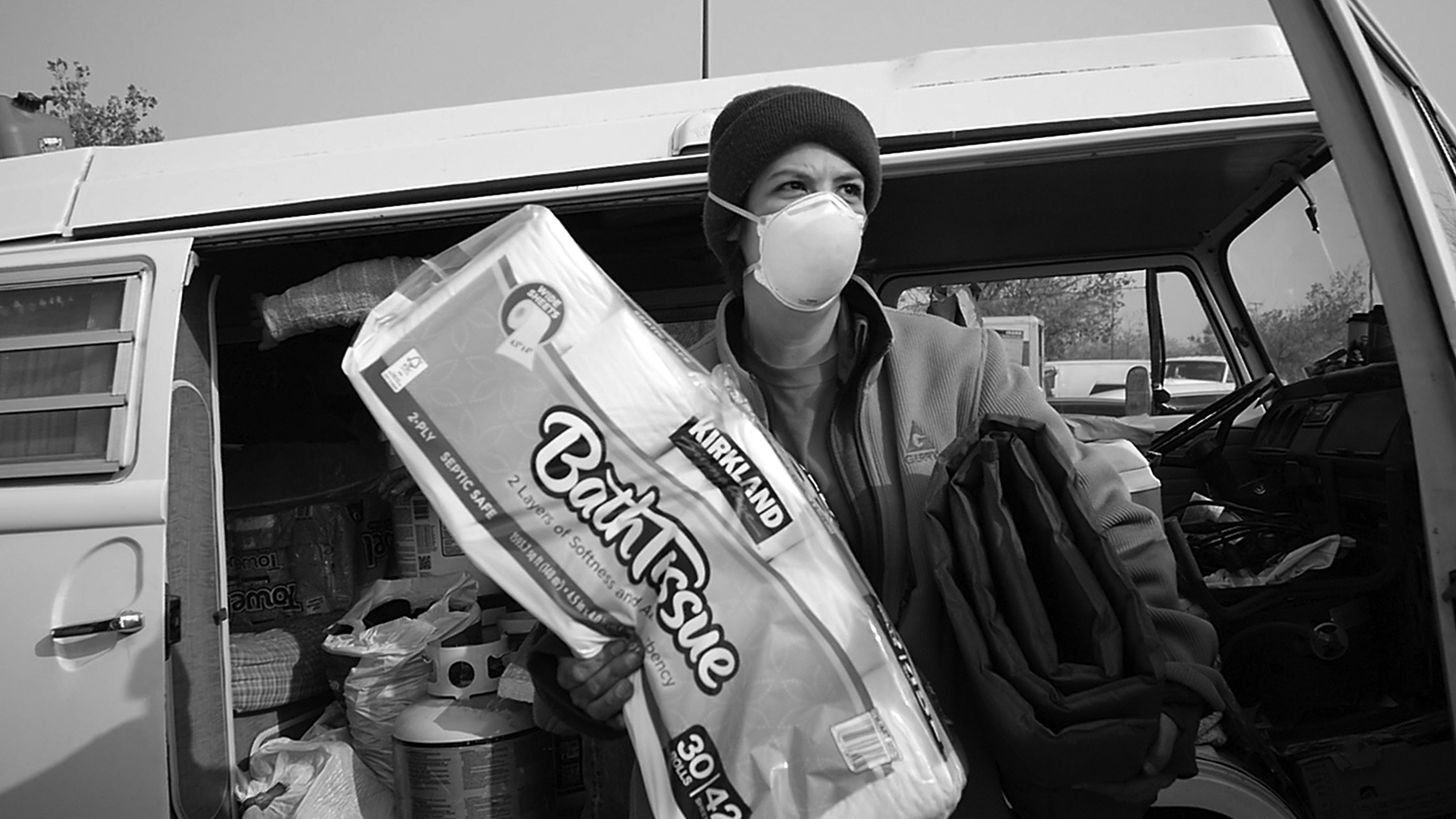Climate Horror in California

RaeAnne Owen, Chico DSA co-chair, unloads donated supplies at the Walmart parking lot fire refugee camp. Photo by Francis Tatem, Sacramento DSA.
A sad reality of the climate crisis that has hit close to home for DSA chapters across the country is the increasingly frequent devastation caused by extreme natural disasters. Over the past two years, hurricanes Florence, Harvey, Irma, and Maria have devastated parts of the United States and Puerto Rico. More recently, the Camp Fire wreaked havoc across California, displacing thousands of people from their homes and threatening entire cities with dangerous air quality. In the face of these disasters, our capitalist bureaucracies have proved insufficient, but DSAers and other community members have been spurred into action in solidarity with their neighbors. — The Editors
At 6:30 in the morning on November 8, 2018, something terrible and totally predictable happened. In howling winds, uninsulated PG&E lines in the rugged North Fork Feather River canyon in Northern California malfunctioned, starting a fire in dry brush near Camp Creek Road. Fire personnel responded, but found themselves fighting just to save people, animals, and themselves from the inferno. By noon, the town of Paradise—population 27,000—was devastated. Fifty thousand people from Paradise and neighboring communities were evacuated, almost 14,000 homes and apartment buildings burned to the ground, and 86 people were killed. The destruction is unprecedented in modern U.S. wildfire history.
The Camp Fire and its aftermath show the stark future that faces a world hurtling toward uncontrollable climate change: vast destruction and millions in Northern California choking on some of the most toxic air in the world. And even after the fire was contained, the impacts kept accumulating. The Pandora’s Box of capitalist plagues sprang open for us on November 8.
Both Paradise and the neighboring city of Chico, already tight housing and rental markets, became jammed due to the vast destruction of housing stock. The financially starved federal agencies charged with responding to such disasters provided only meager transitional support. The destruction of schools, businesses, and the only hospital in Paradise threw many out of work at the same time that the fire burned their homes, their belongings, and their transportation. Thousands of people, many of them already near the margins of society—the elderly, the working poor—were stripped of the security they had struggled to create for themselves.
Many who were not even in the path of the fire had their lives upended, as landlords and property managers with eyes on quick, high-dollar sales or insurance-funded higher rental fees booted working-class tenants from their homes. On the heels of the fire came a government shutdown, closing the very agencies that are supposed to protect the environment and prevent future wildfire catastrophes: the EPA and the U.S. Forest Service, among many others.
Chico DSA members have been active on the ground since shortly after the fire began. Our scheduled Brake Light Repair became an impromptu donation drive, with hundreds of pounds of supplies collected and distributed to evacuees in parking lots and unofficial shelters. We received critical material support from East Bay, Sacramento, San Francisco, and even New York DSA chapters, as well as advice and encouragement from National Director Maria Svart. Sacramento DSA produced and released a video showing the conditions on the ground at the ad hoc evacuee camp, including Chico DSA members reading excerpts of a statement on the Camp Fire and capitalism.
More recently, we have been collaborating with Chico 350 in pushing the Chico City Council to declare a climate emergency and have been pushing for local support for a Green New Deal. In the recent California Democratic Party delegate elections, North State Progressive Alliance slates in our and neighboring assembly districts won numerous delegate positions, with the Green New Deal taking an important place in their policy platform.
This catastrophe in our community drove home the urgency of ecosocialist action. Only through grassroots organizing for government action can we force the immensely powerful polluting industries to stop cooking the earth. And only through this same organizing can we create social programs to protect all of us when our lives go up in smoke. In the Camp Fire, we have a crystal-clear example of how rent control, Medicare for All, and the Green New Deal can create a more humane future.
 Democratic Socialists of America
Democratic Socialists of America